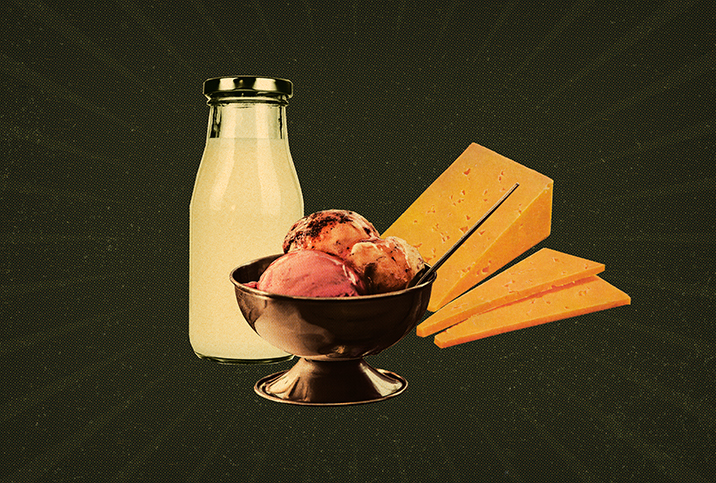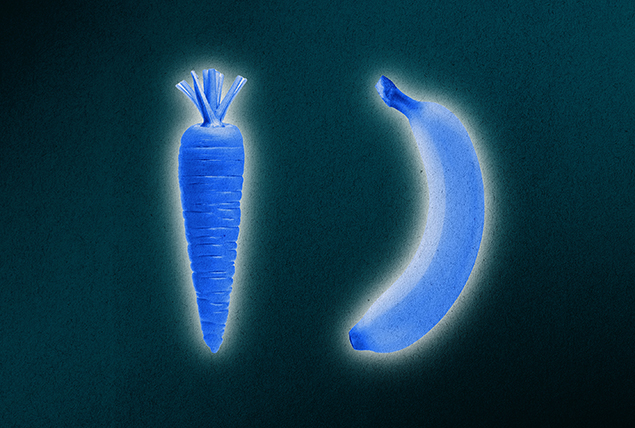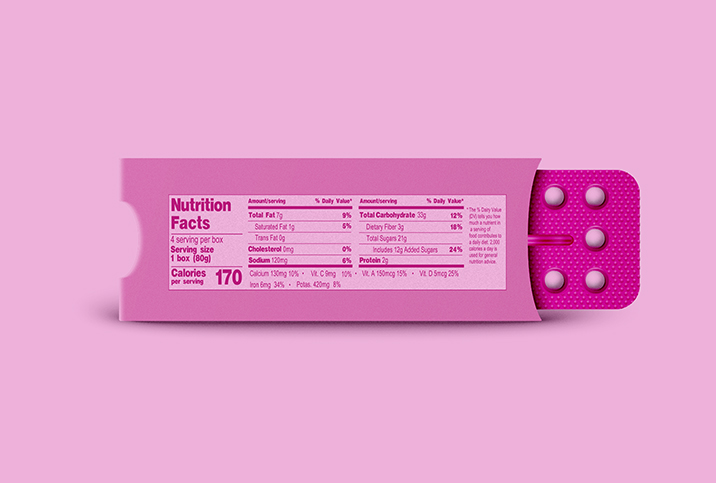Nutrition Plays a Vital Role in Sexual Health

We often think about the consequences of an unhealthy diet on weight and the increased risk of certain metabolic diseases such as diabetes, but a poor diet can also cause problems with sexual health.
Low libido, erectile dysfunction (ED), poor performance and even infertility can result from unhealthy eating habits.
Nutrition and sexual health
A healthy diet that focuses on whole, natural foods can positively affect sexual function and drive by balancing hormones, improving fertility and promoting a healthier weight, according to Kimberly Gomer, M.S., a registered dietitian, licensed dietitian nutritionist and the director of nutrition at Body Beautiful Miami.
"Avoiding processed food can help your stamina in the bedroom. Just like any other workout, stamina and endurance are important in the bedroom," Gomer explained. "A bad diet full of processed foods can contribute to the inflammation associated with heart disease and atherosclerosis. If arteries are clogged, the blood flow to the penis can be affected and erectile dysfunction can occur."
Processed foods and obesity can contribute to high insulin levels, which can decrease levels of testosterone, a hormone that greatly impacts sex drive, she added.
"Both a diet of nutrient-dense whole foods including protein, vegetables, healthy fats and carbohydrates as tolerated, in addition to exercise, is the way to keep testosterone levels up," Gomer said.
Alcohol can affect sexual performance and function as well.
"While a drink or two may decrease inhibitions, heavy drinking—four or more drinks—can lower testosterone, which can decrease mood, libido and the ability to get an erection or orgasm," Gomer stated.
Research has demonstrated a notable connection between gut health and sexual health in that a well-balanced, healthy gut microbiome can support sexual health.
"Having a lot of healthy bacteria in the gut helps all other organs do their jobs," Gomer explained. "This includes promoting optimal blood circulation, which is needed for achieving orgasms."
A poor diet high in inflammatory foods can also make a difference.
"Inflammatory foods can cause low testosterone, a key hormone in sexual health for both men and women," Gomer said. "A woman's lower testosterone level can affect her ability to orgasm, and for men cause a risk of testosterone deficiency."
Examples of inflammatory foods include refined grains, sugar-sweetened beverages such as soda and fruit juice drinks, fast food, frozen convenience foods such as tater tots and chicken nuggets, snack foods such as chips and cookies, packaged baked goods, toaster pastries, sugary cereals, fruit snacks, fatty red meats, and processed meats such as sausage, bologna, hot dogs and salami.
Sexual performance can decline with a poor diet as well, explained Amy Shapiro, M.S., a registered dietitian and the founder of Real Nutrition in New York City.
"Often, this is due to hormonal imbalance or neuropathy, which can be a side effect of certain disease states like diabetes or blood vessel disorders," she said. "A healthy human has adequate blood flow, which allows for arousal. When blood vessels do not dilate adequately, sexual side effects may occur. A healthy diet can boost libido, stamina and blood flow."
What a healthy diet looks like
What does a healthy diet to support sexual health mean, practically?
A good diet should be rich in healthy fats, lean protein and plant foods, according to Shapiro.
Her suggestions for some of the best foods to include in your diet to support sexual health and performance include the following:
- Foods that are high in zinc because they increase blood flow. Examples include oysters, crab, lobster, beef, beans and fortified cereals.
- Foods that are high in omega-3 fatty acids. They improve blood flow, can prevent blockages in blood vessels and decrease inflammation, which is a contributor to many chronic health conditions, such as obesity, heart disease, hypertension and metabolic syndrome. Examples of foods high in omega-3 fatty acids include salmon and other fatty fish like mackerel and tuna, as well as flaxseeds and certain nuts.
- Foods that contain quercetin, an antioxidant that prevents erectile dysfunction and improves blood flow. Examples include citrus fruits, apples, onions, dark berries and cherries, as well as parsley, sage and red wine.
- Foods that contain dietary nitrates, a compound that helps to increase blood flow by dilating blood vessels. Examples include beets and dark, leafy greens such as Swiss chard, beet greens and spinach.
Nutrition and reproductive health
Poor nutrition can potentially affect reproductive health, too, according to Kent L. Bradley, M.D., M.P.H., the chief health and nutrition officer at Herbalife Nutrition in California.
"Every cell in your body needs a source of nutrients to grow, repair or maintain its health," Bradley said. "These cells, in turn, have various functions, some of which include the production of hormones and maintenance of organs that are important in systems like the reproductive system. Hormones, in particular, are dependent on adequate sources of essential amino acids that come from the protein you eat."
Individuals who are undernourished or obese can experience compromised fertility.
"It also shows up in men through the impact on the peripheral vascular system and overall cardiac health that then impacts their reproductive system," Bradley added.
Many of the same ways in which a poor diet and bad nutrition negatively impact sexual health also cause consequences to your reproductive health, Shapiro explained.
"Without consuming a balanced diet rich in nutrients, our sex cells may not be healthy and, therefore, reproduction may not be as efficient as one would like," she said. "Eating foods that encourage energy and balanced blood sugar levels will help reproductive health."
Another diet and nutrition issue related to reproductive health and sexual performance that is not often discussed are unhealthy forms of restricted eating and dieting.
"People try to get healthy and lose weight by dieting, but instead they undereat, restrict and, without knowing it, affect their libido," Gomer said. "It is important to eat adequately [to support health]. Protein along with healthy fats provide us with the ability to produce necessary hormones, facilitate blood flow and lubrication."
Hormones are made of fat, Gomer explained. When fat is restricted due to dieting, the body can't make the hormones it needs to support a strong libido. A person who starves while trying to lose weight negatively impacts their energy, mood, metabolism and sex drive.
She suggested people eat foods with healthy fats—examples include salmon and avocado—to support the production of estrogen and testosterone.
Complications of poor nutrition and related conditions
What we eat has a major impact on all of our bodily systems, so the consequences of poor nutrition can lead to a variety of health complications and medical conditions.
"Poor nutrition can lead to obesity, decreased energy, decreased blood flow to sex organs, hormonal imbalance and other disease states, which may require medications that can also [negatively impact] health," Shapiro said. "With increased weight and a poor diet, blockages in your blood vessels are more likely."
The consequences of an unhealthy diet can begin with weight gain, elevated cholesterol, increased blood glucose, imbalanced hormone levels and high blood pressure. But they may not stop there.
"These can all elevate to more severe disease states, including heart disease, diabetes, cancers, cognitive decline, decreased energy and output, and overall decreased quality of life," Shapiro said.
Given the potential ramifications of a poor diet, it's clear that focusing on trying to eat well is one of the best things you can do to support your sexual health and overall wellness.


















